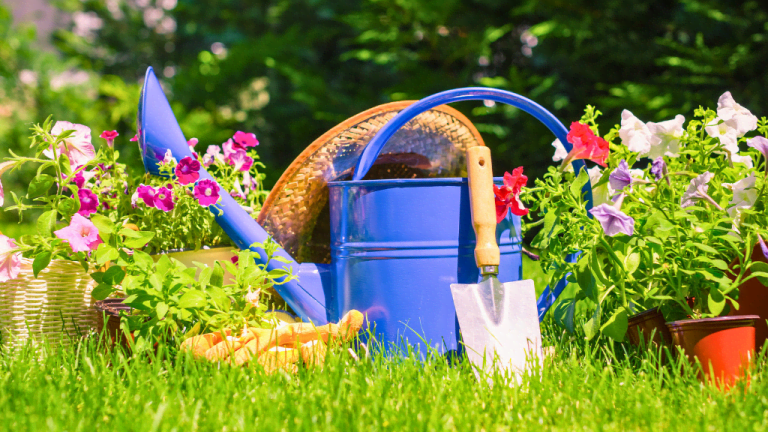The Most Effective Gardening Plants for Low-Maintenance and High Reward
The Most Effective Gardening Plants for Low-Maintenance and High Reward
Blog Article
Recognizing the Various Kinds of Gardening and Exactly How They Add to a Much Healthier Way Of Life and Atmosphere

Benefits of Veggie Gardening
Numerous people are progressively identifying the myriad benefits of veggie gardening as an important element of a much healthier lifestyle. Participating in vegetable horticulture supplies numerous physical health advantages, including boosted exercise, which boosts cardiovascular wellness and promotes general physical fitness. The act of growing, weeding, and harvesting calls for motion and can help fight less active actions, contributing to weight management and boosted muscular tissue tone.
In addition, growing one's own vegetables significantly enhances nutritional quality. Homemade fruit and vegetables is usually fresher and much more nutrient-dense contrasted to store-bought choices, as it can be taken in shortly after harvest. This accessibility encourages a greater consumption of fruits and vegetables, which are necessary for preventing persistent conditions.
Additionally, veggie gardening cultivates psychological health by giving a restorative electrical outlet for tension alleviation and relaxation. Collectively, these advantages highlight the relevance of vegetable horticulture as a foundation of a healthier lifestyle.
Exploring Blossom Horticulture

In enhancement to visual advantages, blossom horticulture supports local ecosystems. Many flowering plants draw in pollinators, such as and butterflies, which are crucial for keeping biodiversity. The presence of diverse vegetation can likewise boost dirt wellness, as various plants add to vitamins and mineral cycling and boost dirt structure.
Moreover, blossoms can play a substantial duty in promoting sustainable practices. Several garden enthusiasts choose indigenous or drought-resistant varieties, which call for less water and minimal chemical inputs. This method not just profits the environment however additionally motivates responsible gardening routines.
Ultimately, blossom horticulture acts as a crucial component of a holistic horticulture strategy. Gardening. By growing elegance and sustaining neighborhood communities, it balances with veggie horticulture and highlights the relevance of nurturing both our physical and psychological health through nature
Container Gardening Advantages
Container gardening offers countless advantages that make it an attractive option for both novice and skilled garden enthusiasts. Among the primary advantages is its adaptability; containers can be positioned on outdoor patios, balconies, or even indoors, permitting horticulture precede with limited ground gain access to. This flexibility makes it possible for people in urban environments or those helpful site with tiny lawns to cultivate plants properly.
Additionally, container gardening gives improved control over soil top quality and wetness degrees. Gardeners can choose details dirt blends to enhance plant health and alleviate concerns like weeds and bugs. The mobility of containers likewise permits simple moving to optimize sunlight direct exposure or shield plants from stormy weather.
Moreover, container yards can be aesthetically pleasing, providing an opportunity for creative thinking in layout. Gardening. They can serve as attractive elements that boost outside or indoor areas while advertising biodiversity by attracting pollinators
Lastly, container horticulture can add to a much healthier way of living by motivating physical activity, as it often involves lifting, planting, and keeping plants. Overall, the benefits of container horticulture make it an available and fulfilling technique for those looking for to enhance their lifestyle and atmosphere.
The Rise of Vertical Gardening
As urban areas come to be progressively crowded, the trend of upright gardening has taken off, allowing people to optimize their gardening capacity in minimal locations. This innovative technique includes growing plants in vertical structures, such as wall-mounted planters, trellises, or specialized vertical yard systems. The charm of upright horticulture exists not just in its efficient use of space but also in its visual contribution to city atmospheres, changing bare walls into rich green landscapes.
Vertical yards can be mounted in homes, see here now terraces, and area spaces, providing a platform for growing a selection of plants, consisting of natural herbs, vegetables, and ornamental blossoms. This technique encourages biodiversity and can enhance air top quality by filtering system pollutants while promoting a connection to nature in largely inhabited areas. Furthermore, vertical gardening provides sensible advantages, such as enhanced yield per square foot, making it an eye-catching alternative for urban gardeners seeking to grow their very own food.
Sustainable Practices in Horticulture
Welcoming sustainable techniques in gardening is crucial for advertising environmental health and ensuring the viability of our natural deposits. Sustainable horticulture methods concentrate on reducing environmental effect, conserving water, and promoting biodiversity. By executing techniques such as organic gardening, gardeners can lessen using synthetic plant foods and pesticides, which can harm regional communities.
Companion planting is one more reliable lasting method, where certain plants are grown together to improve growth and hinder pests naturally. Furthermore, using native plants in landscaping sustains regional wildlife and requires much less upkeep, as they are naturally adapted to the local climate and soil Home Page conditions.
Water preservation strategies, such as rain harvesting and drip irrigation, help to efficiently manage water sources, therefore lowering waste. Additionally, composting natural waste not only enriches the dirt however likewise lowers land fill payments, promoting a circular economy.
Lastly, exercising plant rotation and cover cropping boosts soil health and minimizes the risk of bug problems. By integrating these lasting methods, gardeners can create durable communities that add to a healthier way of living while safeguarding the environment for future generations.
Final Thought

Finally, the varied approaches of gardening, consisting of vegetable, blossom, container, and upright horticulture, collectively advertise a much healthier lifestyle and enhance ecological sustainability. Each kind provides distinctive advantages, from offering fresh produce and bring in pollinators to enhancing limited areas and motivating biodiversity. By fostering lasting practices, these horticulture comes close to not only add to specific wellness however likewise support wider eco-friendly conservation efforts, eventually minimizing reliance on commercial farming and boosting area resilience.
Report this page